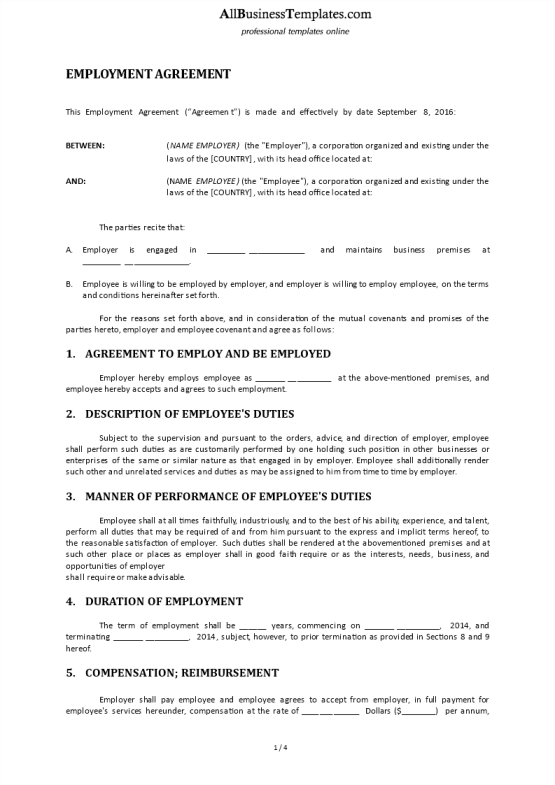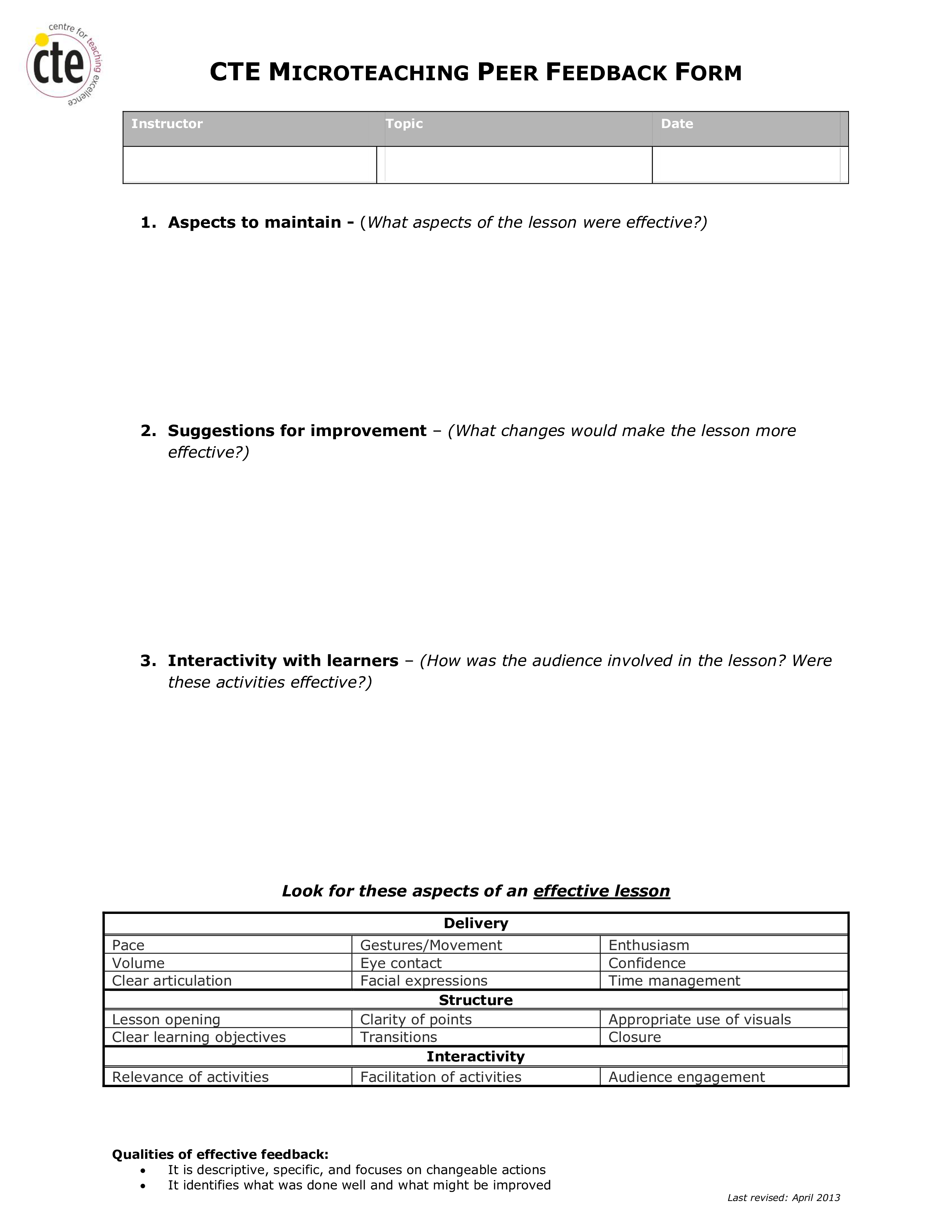Cte Microteaching Peer Feedback Form
Sponsored Link免费模板 保存,填空,打印,三步搞定!

Download Cte Microteaching Peer Feedback Form
Adobe PDF (.pdf)- 本文档已通过专业认证
- 100%可定制
- 这是一个数字下载 (174.76 kB)
- 语: English
Sponsored Link
What is peer feedback in teaching? What are the steps to create a form for peer feedback in Microteaching? Download our sample form template now and customize it to your own needs. Start implementing peer feedback into your classroom to help your students grow and improve their skills.
A Microteaching Peer Feedback Form, typically used in the context of teacher education or faculty development, is a structured evaluation tool that allows peers or fellow educators to provide constructive feedback on a microteaching session conducted by an instructor or teacher candidate. Microteaching is a teaching practice where educators deliver short, focused lessons to a small group of peers or students for the purpose of skill development and improvement. The feedback form helps assess and enhance the teaching skills and techniques of the instructor.
The specific content and format of a CTE Microteaching Peer Feedback Form may vary depending on the educational institution or program's requirements and goals. However, it often includes the following components:
- Session Information:
- Date and time of the microteaching session.
- Instructor's name and the course or topic being taught.
- Peer Evaluator Information:
- Name of the peer evaluator providing feedback.
- Contact information or identification details (if necessary).
- Objective or Learning Goals:
- The specific objectives or learning outcomes that the instructor aimed to achieve during the microteaching session.
- Teaching Skills and Techniques:
- Criteria or categories for evaluating teaching skills and techniques, such as lesson planning, instructional strategies, classroom management, engagement, and assessment methods.
- Rating Scale: A scale or set of checkboxes, ranging from excellent to needs improvement, for the peer evaluator to assess each criterion.
- Comments and Suggestions:
- A section where the peer evaluator can provide written comments, observations, and specific suggestions for improvement. This may include positive feedback and areas where the instructor excelled, as well as areas that require enhancement.
- Strengths: A space to highlight the instructor's strengths and effective teaching practices observed during the session.
- Areas for Improvement: Identifies areas or aspects where the instructor can improve their teaching skills and techniques.
- Overall Evaluation: A summary or overall evaluation of the instructor's performance during the microteaching session, often accompanied by a final rating or recommendation.
- Peer Evaluator's Signature: To confirm that the feedback was provided by the peer evaluator.
- Date of Feedback: The date when the peer feedback was given.
- Action Plan: A section where the instructor can outline steps they plan to take based on the feedback received to enhance their teaching skills.
These feedback forms play a crucial role in teacher development by providing instructors with valuable insights into their teaching practices and areas for improvement. They encourage reflective teaching practices and support ongoing professional growth in the field of education. Additionally, they promote a culture of peer collaboration and constructive feedback among educators.
Using this document template guarantees you will save time, cost, and effort! It comes in PDF format, is ready to be tailored to your personal needs. Completing your document has never been easier!
Download this Cte Microteaching Peer Feedback Form template now for your own benefit!
DISCLAIMER
Nothing on this site shall be considered legal advice and no attorney-client relationship is established.
发表评论。 如果您有任何问题或意见,请随时在下面发布
相关文件
Sponsored Link


